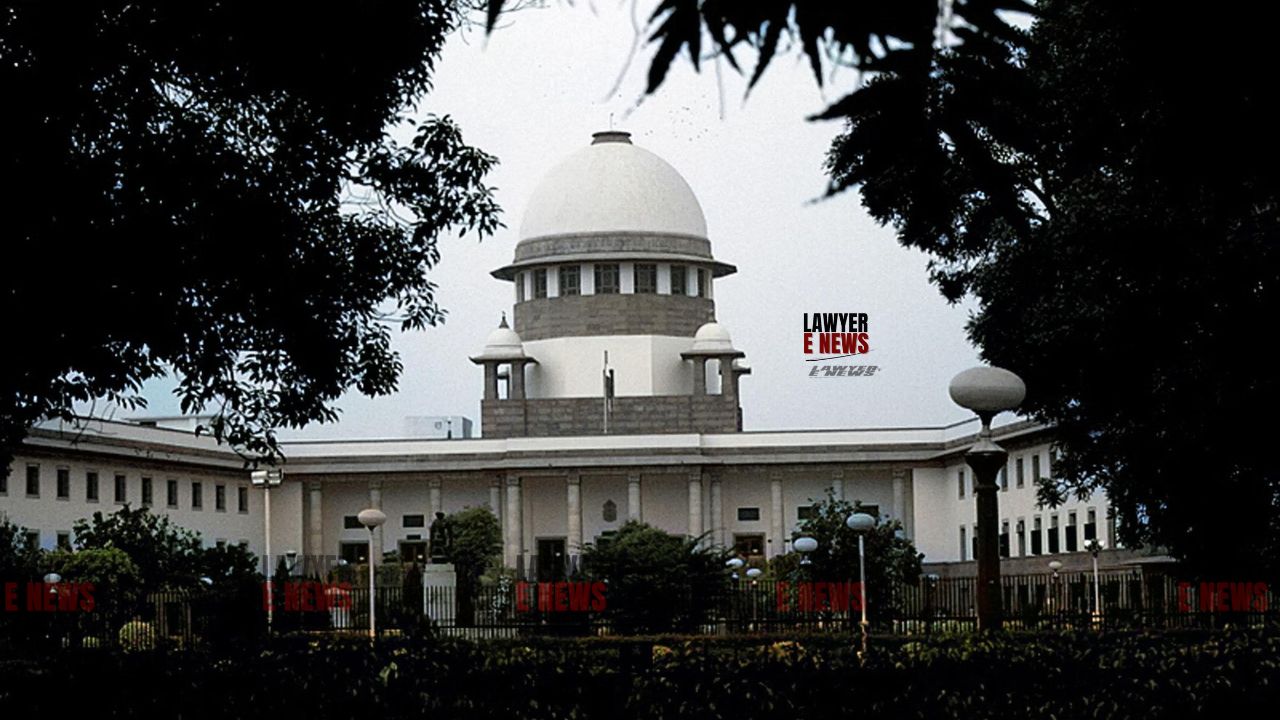-
by Admin
15 February 2026 5:01 PM



Supreme Court of India ruled that the Bombay High Court acted beyond its jurisdiction by framing nine points for determination in eviction proceedings under the Mumbai Municipal Corporation Act, 1888. The Supreme Court bench comprising Justice Dipankar Datta and Justice Prashant Kumar Mishra allowed the appeals filed by the appellants (Municipal Corporation of Greater Mumbai and others) and set aside the High Court's directions, restoring the procedural autonomy of the Inquiry Officer to adjudicate independently.
"Chapter V-A of the Act is a code in itself. The High Court's interference by framing points for determination obstructs the summary nature of eviction proceedings."
The case pertained to eviction proceedings under Section 105B of the Mumbai Municipal Corporation Act, 1888, initiated against occupants of municipal staff quarters. The respondents (occupants or their legal heirs) challenged the High Court's framing of specific issues for the Inquiry Officer to determine. The Supreme Court emphasized that proceedings under Section 105B are summary in nature, requiring the Inquiry Officer to assess evidence and determine if possession of the premises is unauthorized. The High Court’s intervention, the Court held, disrupted the statutory framework and procedural autonomy granted under the Act.
The dispute originated in 2007 when eviction proceedings were initiated against retired municipal employees and their legal heirs occupying public premises on a leave and license basis.
The respondents sought ownership rights over the premises, alleging that a resolution passed by the Municipal Commissioner granted them such rights. Both the Bombay High Court and the Supreme Court rejected their claims.
In 2017, the Supreme Court upheld the High Court's ruling that the land belonged to the public and could not be converted into private ownership.
After eviction notices were issued under Section 105B, the respondents alleged violations of natural justice, leading to the High Court’s order for a fresh inquiry in 2021.
The respondents challenged the Inquiry Officer’s jurisdiction and sought the framing of issues regarding institutional bias, limitations, and procedural improprieties. The Bombay High Court framed nine points for determination and directed expedited proceedings, prompting the appellants to approach the Supreme Court.
The Supreme Court reiterated that judicial orders passed by civil courts or equivalent judicial authorities cannot be challenged under Article 226. It cited the decision in Radhey Shyam v. Chhabi Nath (2015) 5 SCC 423, stating that such challenges fall exclusively under Article 227 supervisory jurisdiction.
The Principal Judge of the City Civil Court, designated as the appellate authority under Section 105F of the Act, was held to act in a judicial capacity and not as a persona designata. Thus, the appellate order was not amenable to writ jurisdiction under Article 226.
The Court held that the High Court exceeded its jurisdiction under Articles 226 and 227 by framing points for determination in a quasi-judicial proceeding, a task specifically reserved for the Inquiry Officer.
The Court emphasized that the High Court’s role is limited to judicial review and cannot interfere in the procedural domain of the Inquiry Officer unless there is a clear violation of law or natural justice principles.
The respondents argued that the Inquiry Officer, being an employee of the Municipal Corporation, was inherently biased. However, the Supreme Court rejected this claim, relying on precedents like Delhi Financial Corporation v. Rajiv Anand (2004) 11 SCC 625 and Accountant and Secretarial Services (P) Ltd. v. Union of India (1988) 4 SCC 324.
The Court held: “Mere employment of the Inquiry Officer with the Municipal Corporation does not establish personal bias unless proven otherwise. The Inquiry Officer’s quasi-judicial capacity ensures impartiality.”
The High Court had framed an issue regarding whether the absence of regulations under Section 105H invalidated the eviction proceedings. The Supreme Court clarified that Section 105H only provides for optional regulations, and their absence does not hinder the Inquiry Officer's jurisdiction.
It held: “Even in the absence of regulations, eviction proceedings under Section 105B can continue, provided principles of natural justice are adhered to.”
Two issues framed by the High Court—relating to the nature of the respondents’ occupation and limitation—were held to be redundant.
Res Judicata: The respondents' claim of ownership rights had already been rejected in prior litigation (2017), and the doctrine of res judicata barred re-litigation on the same issues.
Limitation: The Supreme Court clarified that the Limitation Act, 1963 does not apply to quasi-judicial eviction proceedings, which are administrative in character.
“Natural justice suffices where regulations are absent.”
The Supreme Court emphasized that procedural fairness is critical in eviction proceedings. However, it found no procedural impropriety in the actions of the Inquiry Officer. The High Court’s intervention in framing issues was deemed unnecessary and contrary to established judicial precedents.
The Supreme Court allowed the appeals, setting aside the High Court’s order and restoring the Inquiry Officer’s autonomy to independently adjudicate the eviction proceedings. It directed the Inquiry Officer to:
Independently determine contentious issues based on evidence and prior judicial orders.
Ensure adherence to principles of natural justice.
Date of Decision: December 13, 2024a
